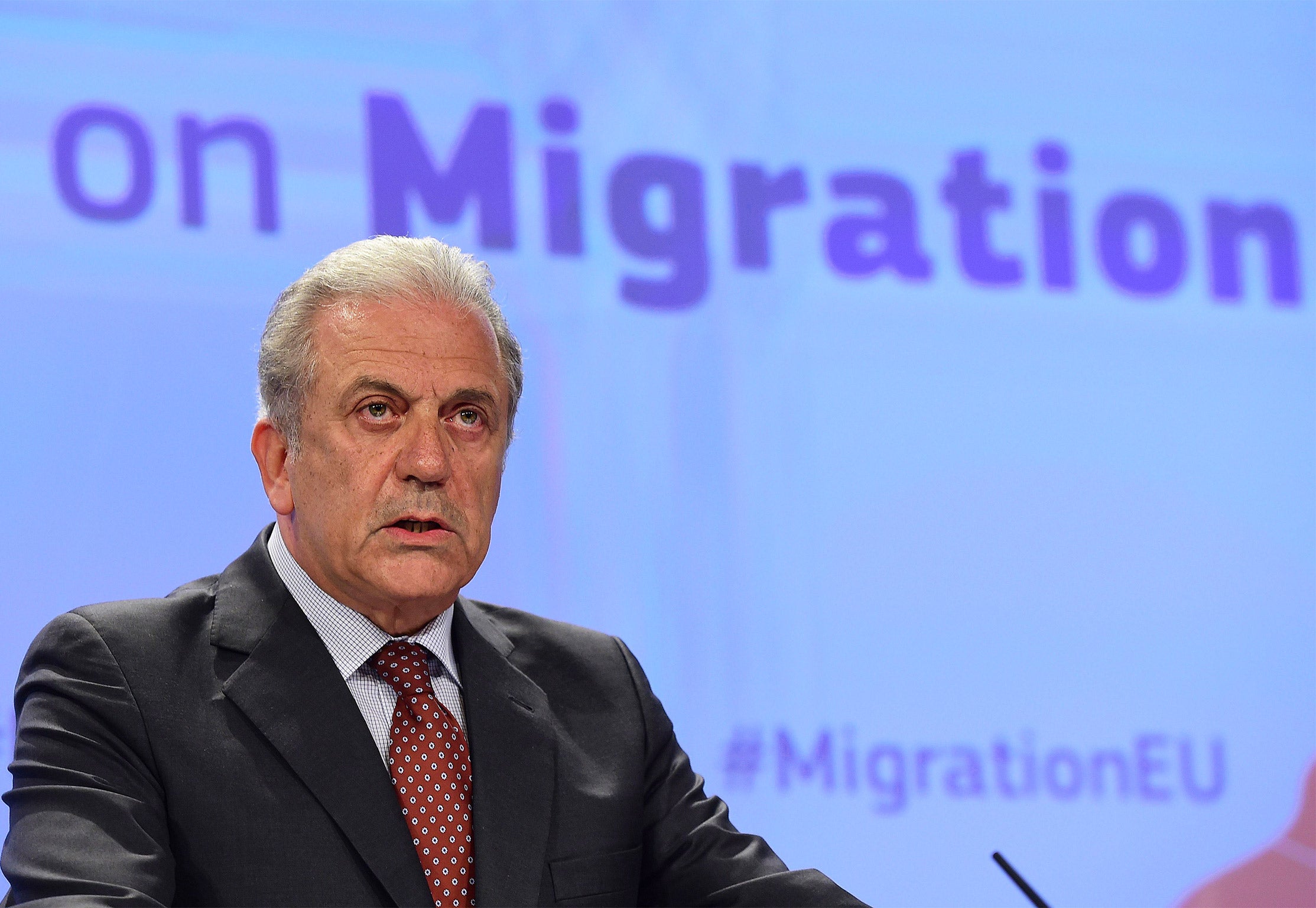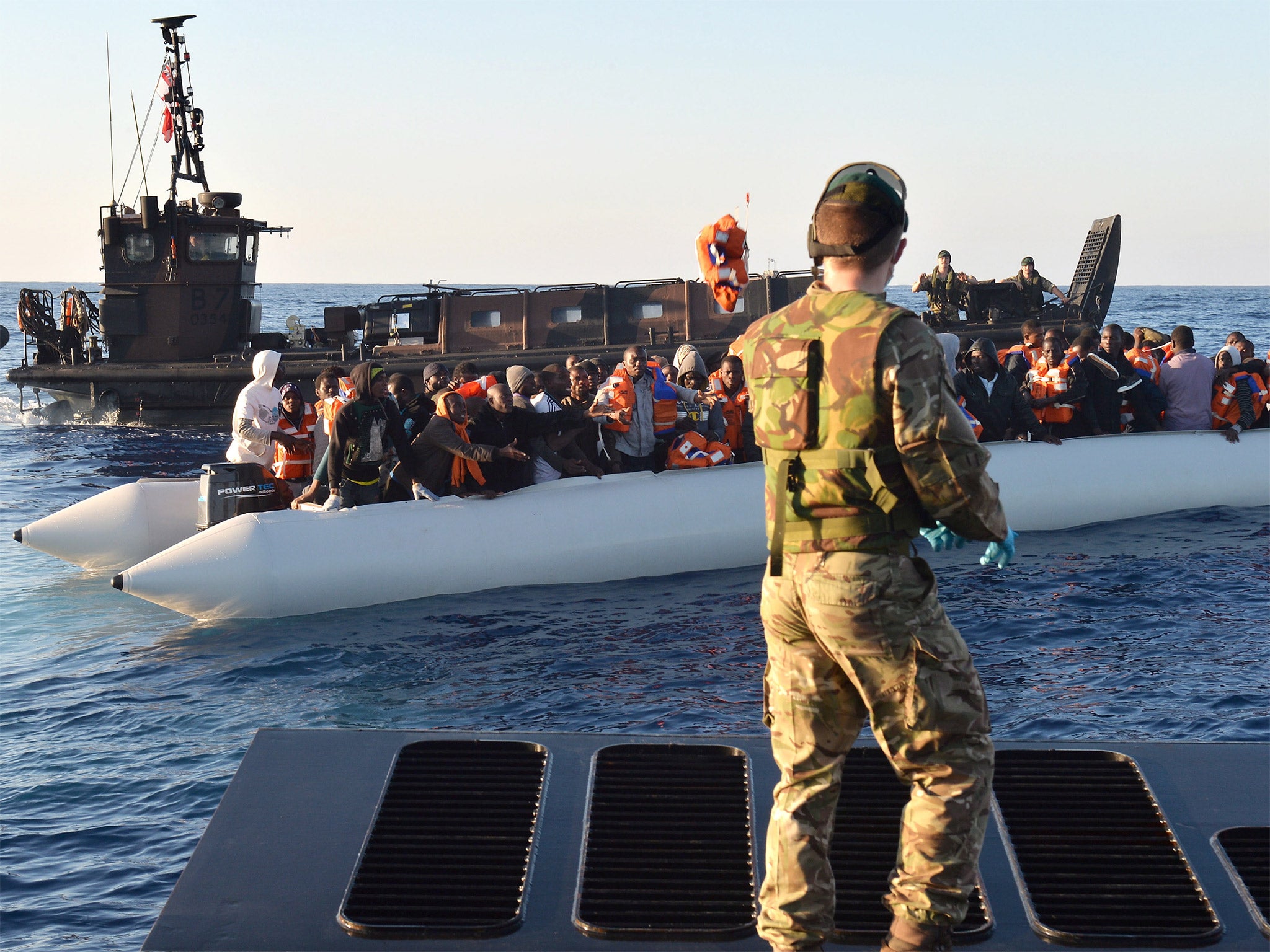Mediterranean migrant crisis: The European Commission unveils its quota scheme
Significant opposition means it is likely to be stalled in the bureaucratic process

Your support helps us to tell the story
From reproductive rights to climate change to Big Tech, The Independent is on the ground when the story is developing. Whether it's investigating the financials of Elon Musk's pro-Trump PAC or producing our latest documentary, 'The A Word', which shines a light on the American women fighting for reproductive rights, we know how important it is to parse out the facts from the messaging.
At such a critical moment in US history, we need reporters on the ground. Your donation allows us to keep sending journalists to speak to both sides of the story.
The Independent is trusted by Americans across the entire political spectrum. And unlike many other quality news outlets, we choose not to lock Americans out of our reporting and analysis with paywalls. We believe quality journalism should be available to everyone, paid for by those who can afford it.
Your support makes all the difference.The European Commission has unveiled its migrant quota scheme, in the face of significant opposition from across the continent that means it is likely to be stalled in the bureaucratic process.
The €50m (£36m) scheme is aimed at redistributing refugees across the continent, using criteria including GDP, population size, unemployment rates and past numbers of asylum seekers and resettled refugees. This would mean Germany taking the most migrants (18.4 per cent) followed by France (14.2 per cent) and Italy (11.8 per cent) – assuming no involvement by the UK, Ireland and Denmark.
It is a part of a broad package of migrant policies unveiled which also includes the resettlement of 20,000 refugees from outside the EU.

Most of the measures, including the resettlement quotas, will be debated on 16 June by EU justice and home affairs ministers meeting in Luxembourg. Given the extent of opposition, including from Hungary, Slovakia and Estonia, the package is likely to see significant concessions.
Other elements of the EU plan include measures to reduce incentives for irregular migration. The assets and resources to the EU’s Frontex border agency missions involved in search and rescue work would be tripled in 2015 and 2016 to €89m.
Another scheme involves setting up a pilot asylum screening centre in Niger by the end of the year that would help provide local protection and work out resettlement opportunities for those in need.
The 18-page plan also includes measures to attract more highly skilled legal migrants through its so-called Blue Card scheme. “With an ageing population, the EU is mainly facing skilled shortages on the labour market, particularly in sectors such as science, technology and engineering,” the Commission proposal says.
The package will be discussed by EU foreign ministers meeting in Brussels on Monday and Tuesday. They are also expected to approve a planned naval mission off the coast of Libya.
Join our commenting forum
Join thought-provoking conversations, follow other Independent readers and see their replies
Comments